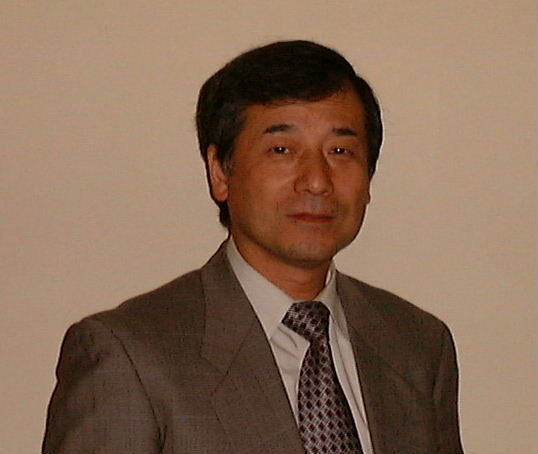Dr. Masao Hotta
General Manager
Advanced Analog Technology Division,
Renesas Technology Corp.
111 Nishiyokote-machi, Takasaki-shi, Gunma-ken 370-0021,
Japan
tel: +81-27-360-2127
fax: +81-27-360-2179
Email: hotta.masao@renesas.com |
 |
|
Biography
Masao Hotta received the M.S. and Ph.D.
degrees in electronics from Hokkaido University, Sapporo, Japan,
in 1973 and 1976, respectively. In 1976 he was with the Central
Research Laboratory, Hitachi Ltd., Tokyo, Japan. He initially
engaged in research and development of high-precision monolithic
D/A converters with resolution of 14 bits. In 1981, he started
research and development of high-speed A/D converters for video
use and ultra-high-speed D/A converters for high-definition
display applications. Since 1986, he has been a Senior
Researcher conducting research on analog circuits and
high-precision DACs and ADCs. From 1995 to 1999, He was a
Manager of the Advanced Device Development Department,
Semiconductor Technology Development Center, Semiconductor &
Integrated Circuits Division of Hitachi Ltd. He has worked on
the development of microprocessors, memories, RF devices, and
DA/CAD systems. He was also a Senior Chief Engineer & Senior
Manager of Advanced Analog Technology Center, Semiconductor and
Integrated Circuits of Hitachi Ltd. He developed RF power
amplifier modules, RF transceiver LSIs, and mixed-signal LSIs.
He is presently a General Manager of Advanced Analog Technology
Division, Renesas Technology Corp. He is conducting development
on RF power amplifier modules, RF transceiver LSIs, mixed-signal
LSIs and advanced analog cores for SoC.
Dr. Hotta served on the technical program
committees of CICC, BCTM and ASIC/SOC Conference, and he is a
fellow of IEEE.
|
Analog technologies for the ubiquitous society
of the future
Masao Hotta
Advanced Analog Technology Div., Renesas
Technology
Hotta.masao@renesas.com
Abstract
Network computing will improve human life. The
concept of network computing is shifting from conscious computing to
unconscious computing. In the ubiquitous network age, digital
technologies continue to be vitally important, but analog
functionality will increase in importance to achieve high
performance of network devices. The important issues for system LSIs
are miniaturization, low power consumption and low cost. Analog
technology is the key to achieve high performance in network
devices, even though analog circuits are designed by using fine
technology with low supply voltage. Skillful analog technologies
will support better human life in the ubiquitous society.
|